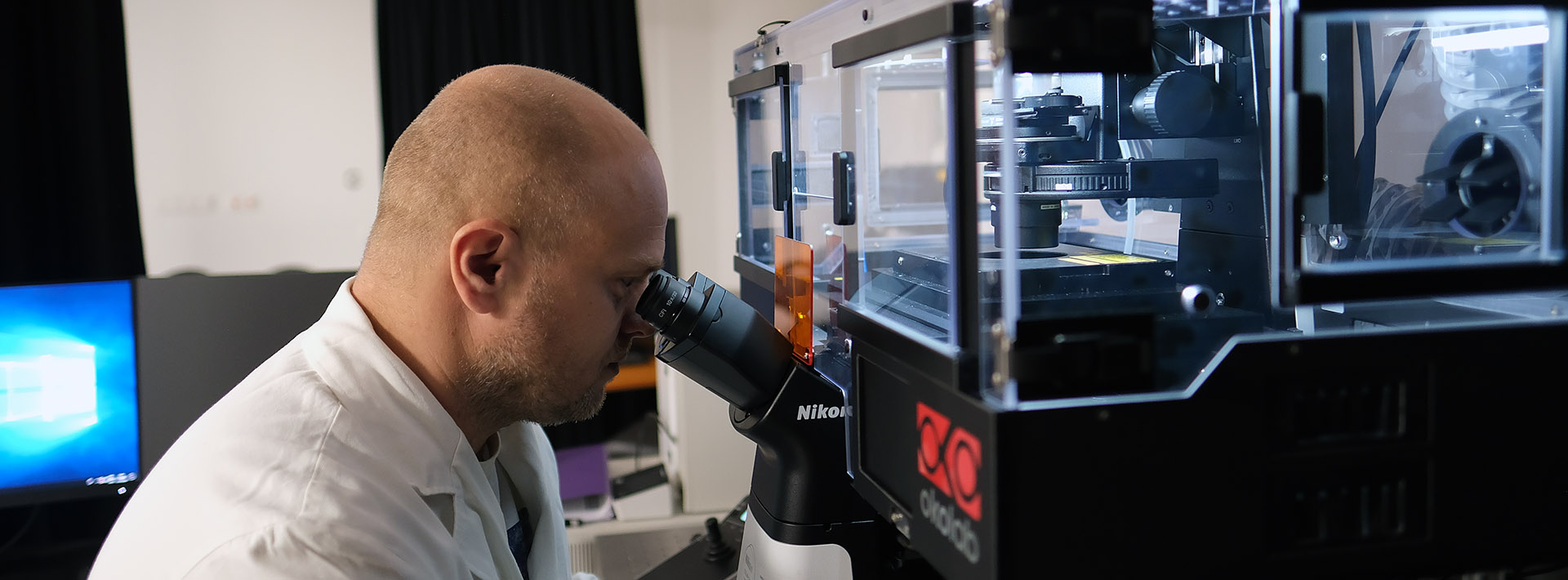Data
Official data in SubjectManager for the following academic year: 2023-2024
Course director
-
Dr. Dóra Tímea ZELENA
professor,
Institute of Physiology -
Number of hours/semester
lectures: 0 hours
practices: 28 hours
seminars: 0 hours
total of: 28 hours
Subject data
- Code of subject: OPO-H1G-T
- 2 kredit
- Pharmacy
- Medical and Health Sciences modul
- autumn
OPO-AI2-T parallel , OPO-G2B-T completed
Exam course:no
Course headcount limitations
min. 5 – max. 220
Topic
The most important mission of the Physiology Course in pharmacy education is to familiarize students with the attributes of healthy functions of the living organism.
While acquiring knowledge about the most important functional characteristics of the human body the students can rely on their prior studies in biology, biophysics, chemistry-biochemistry and anatomy.
During the semester we introduce the most important elements of functioning of the organs and organ systems, as well as their cooperation also required to adapting to the environment, and the factors affecting these processes.
Special emphasis is placed on the neural and humoral regulatory processes of these life-functions, which are vital to maintain and preserve the homeostasis of the organism.
With the transfer of all this knowledge we would like to mould a holistic attitude and thinking of students, which will enable them to better understand the functions of the now healthy, however, later dysfunctional human organism.
Lectures
Practices
- 1. Getting acquainted with the laboratory. General information, schedules. Personal- and equipment safety rules. Animal care regulations.
- 2. Introduction: transport through cell membrane, membrane potentials, action potentials, neuromuscular junction
- 3. Experiments on muscles using computer simulation
- 4. Examination of fatigue. Electromyography.
- 5. Examinations of blood I.
- 6. Examinations of blood I.
- 7. Examinations of blood II.
- 8. Examinations of blood II.
- 9. Examinations of blood III.
- 10. Examinations of blood III.
- 11. Physiology of blood.
- 12. Physiology of blood. Oral report.
- 13. Work stations for electrophysiological registrations.
- 14. Work stations for electrophysiological registrations.
- 15. The heart and circulation I.
- 16. The heart and circulation I.
- 17. The heart and circulation II.
- 18. The heart and circulation II.
- 19. The heart and circulation III.
- 20. The heart and circulation III.
- 21. Physiology of the heart and circulation.
- 22. Physiology of the heart and circulation. Oral report.
- 23. Examinations of respiration.
- 24. Examinations of respiration.
- 25. Gastrointestinal tract.
- 26. Gastrointestinal tract. Oral report.
- 27. Discussion of the laboratory practices and oral examen.
- 28. Discussion of the laboratory practices and oral examen.
Seminars
Reading material
Obligatory literature
John E. Hall & Michael E. Hall: Guyton and Hall Textbook of Medical Physiology (Elsevier), 14th Edition, 2020, ISBN: 0323597122 (Elsevier)
Literature developed by the Department
Figures of the lectures given are available on the homepage of Institute of Physiology and on the Neptun Meet Street.
Important messages on new information will be announced at the lectures and will be sent to you by course mails.
Please always find the current updated information and study materials on the homepage of the Institute of Physiology (physiology.aok.pte.hu).
Notes
Homepage of PTE ÁOK Institute of Physiology: Physiology Lab Practices 1, internet study material, printable notebook, 2023
Homepage of PTE ÁOK Institute of Physiology: Physiology Lab Practice Worksheets 1, internet study material, printable notebook, 2023
Recommended literature
Thomas M. Jessell Steven A. Siegelbaum: Principles of Neural Science, Sixth Edition, 2021, ISBN 1259642232 (McGraw-Hill) Pocket
Kim Barrett, Susan Barman, Jason Yuan, Heddwen Brooks Ganong's Review of Medical Physiology, McGraw-Hill Education 26th Edition (2019)
Conditions for acceptance of the semester
Maximum of 15 % absence allowed
Mid-term exams
Two written mid-term tests during the semester. Oral lab report on the 14th week of the semester.
Making up for missed classes
The missed lab practice is advised to be covered by joining another group while the same topic is on schedule.
Exam topics/questions
Questions for the student lab report:
1. How to use workstations for electrophysiological registrations?
2. The muscle-nerve preparation. Registration of single twitch, superposition, incomplete and complete tetanus. Examination of effect of curare on a muscle-nerve preparation.
3. Effect of load and fatigue on muscle contraction.
4. Electromyography in humans
5. Contraction and regulation of smooth muscle
6. Hematocrit
7. Red blood cell counting
8. White blood cell counting
9. Differential leukocyte count
10. Determination of osmotic resistance
11. Determination of hemoglobin concentration
12. MCV, MCH, MCHC values
13. Bleeding time
14. Clotting time
15. Prothrombin time
16. Blood group determination (AB0 and Rh typing)
17. Recording of heart beats "in situ"; Effect of thermal stimulations
18. Electric stimulation of heart and demonstration of extrasystole
19. Investigation of pacemakers and electric conduction system of heart (Ligatures of Stannius)
20. Summation and the Bowditch's "All or nothing" law
21. Effect of ions on the isolated heart
22. Effect of adrenalin and acetylcholine on the isolated heart
23. Electrocardiography (ECG): the ECG leads and the normal electrocardiogram
24. Examination of the arterial pulse
25. Measurement of blood pressure in human
26. Exercise physiology and physical fitness index
27. Direct measurement of blood pressure: variations in the blood pressure
28. Direct measurement of blood pressure: investigation of the effects of adrenaline,
acetylcholine, and stimulation of n. Vagus
29. Respiratory pressure and volume changes: Donders model
30. Pulmonary function tests: volumes and capacities of the human lungs
31. Pulmonary function tests: dynamic parameters of respiration.
32. Examination of the saliva: pH, the digestive effect of alfa-amylase
33. Gastric juice: Determination of BAO, MAO, PAO
34. Feces: Detection of blood
The study material for the semester exam is the sum total of information covered in the obligatory textbook, e-textbook for physiological practices on the homepage of the Institute, as well as knowledge given at the lectures and lab practices.
Examiners
Instructor / tutor of practices and seminars
- Dr. Kecskés Miklós
- Dr. Szőcs Szilárd
- Péliné Dr. Kovács Anita
